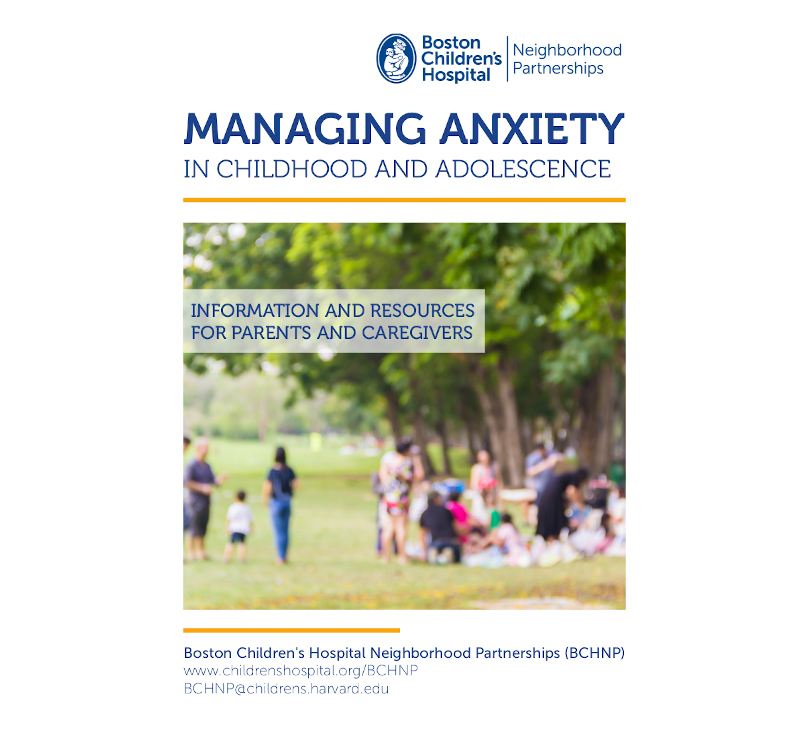Managing Anxiety | Overview
Anxiety is one of the most common behavioral health disorders among children and adolescents in the United States. To support families with managing anxiety in their children and adolescents, Boston Children’s Hospital Neighborhood Partnerships (BCHNP) developed this compelling documentary: Managing Anxiety: Information for Parents and Caregivers.
It features children, adolescents, young adults, and parents sharing their stories, struggles, and successes in coping with anxiety. The video also offers strategies for getting children and adolescents support in school and in the community.
Watch the documentary below, or visit this link on YouTube.

In addition to watching the documentary, download our guide for information on managing anxiety in childhood and adolescence. It includes strategies to be used at home and school, where to find additional support, and how to access resources.
Please keep in mind that most of the information presented in this video and booklet are from a United States and western perspective, although some materials may be universal.
We would like to thank the individuals and families who generously shared their stories with us and participated in the documentary:
- The Chamberland Family: Meredith and Gregory, Braeden and Teagan
- The Dube Family: Melissa and Andrew, Gabriella and Nathan
- The Martinez Family: Nancy and Orlando, Kelly
- Yvette Meza-Vega
- Kassie Wilson
Featured clinicians:
- Andie Hernandez, MSW, MEd: Boston Children’s Hospital Neighborhood Partnerships (BCHNP) Clinician and Consultant
- Dr. Mona Potter, MD: Medical Director, McLean Hospital Child and Adolescent Outpatient Services
Authors:
- Karen Capraro, MEd, LICSW
- Priscila Paulino, MS
- Andie Hernandez, MSW, MEd
- Gisella Mendizabal, MA, LICSW
- Shella Dennery, LICSW, PhD
Contributors:
- Celeste Atallah-Gutierrez, PhD
- Katherine Rossi, LICSW
- Kathryn Moffa, PhD
- Maryanne Clinton, PhD
- Molly Jordan, LICSW
- Samantha Corralejo Falker, PhD
- Suzanne Costello, LICSW
- Vanja Pejic, PhD
Video Production:
About us
Boston Children's Hospital Neighborhood Partnerships (BCHNP) is the school-based behavioral health program in the Department of Psychiatry and Behavioral Sciences. This resource guide and documentary were developed as part of the Training and Access Project (TAP), an initiative within BCHNP. TAP provides professional development and consultation services to help build a school’s capacity to support students’ social, emotional, and behavioral health needs. In addition, TAP has a series of free online trainings that feature educators and school professionals sharing their own experiences and strategies in the classroom.
We would like to thank the Manton Foundation, the Digital Federal Credit Union, and the Department of Psychiatry and Behavioral Sciences for their generous support in making this project possible.
